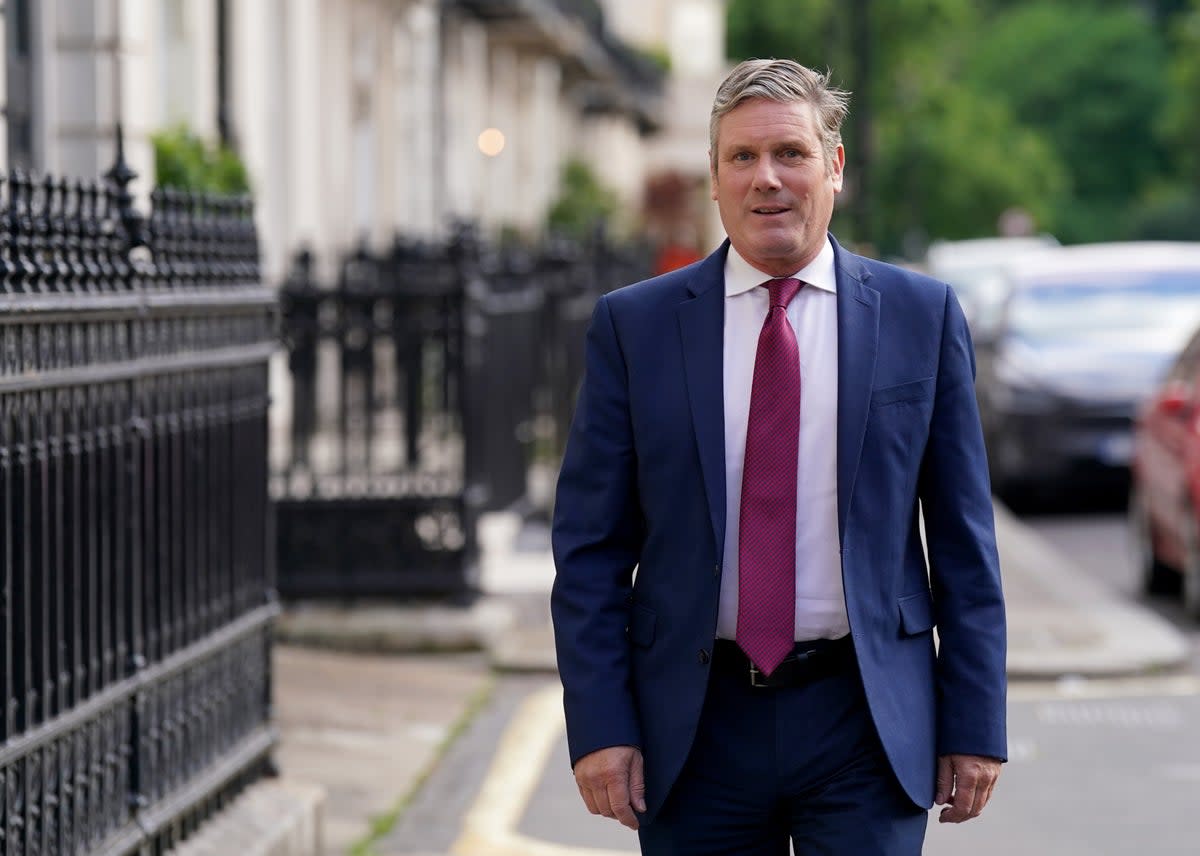Why is Keir Starmer a Sir? How the Labour leader got his knighthood

- Oops!Something went wrong.Please try again later.
- Oops!Something went wrong.Please try again later.
Sir Keir Starmer will go up against Prime Minister Rishi Sunak in a general election on July 4.
In his first campaign speech, he promised to “stop the chaos” and said a vote for Labour would be “a vote for stability”.
Sir Keir is currently the leader of the opposition and, unusually for a Labour leader, he’s been knighted.
But why is Keir Starmer a Sir?
What are the qualifications for a knighthood?
A knighthood is an honour awarded by the British monarch for exceptional national service.
The female equivalent, a damehood, holds the same official title: Grand Cross of the British Empire (GBE).
Among the levels of Honours, there are also CBE, or Commander of the Most Excellent Order of the British Empire, OBE, or Officer of the Most Excellent Order of the British Empire, and MBE, or Member of the Most Excellent Order of the British Empire.
Nominations can be made online or by email, and the honours committee decide which specific honour will be awarded.
Why is Keir Starmer a Sir?
Before his political career, Starmer practised as a human rights defence lawyer.
In 2002, he became Queen’s Counsel (QC) and co-head of Doughty Street Chambers.
Sir Keir Starmer — a title he rarely uses himself — was awarded a knighthood in 2014 for his work as head of the CPS and director of Public Prosecutions; a tradition for those in this role.
His services for “law and criminal justice” were cited as reasons for the honour.
He held the role from 2008 to 2013, covering notorious trials such as the Stephen Lawrence case.
Starmer, 59, this year said: “29 years ago, Stephen Lawrence was murdered in a racist attack.
“I’m proud to have helped bring his killers to justice — we must do more to rid racism from our society.”
In 2015, he earned his seat in Parliament as MP for Holburn and St Pancras and followed with his bid for Labour leadership, winning 56 per cent of the vote in the first round.

